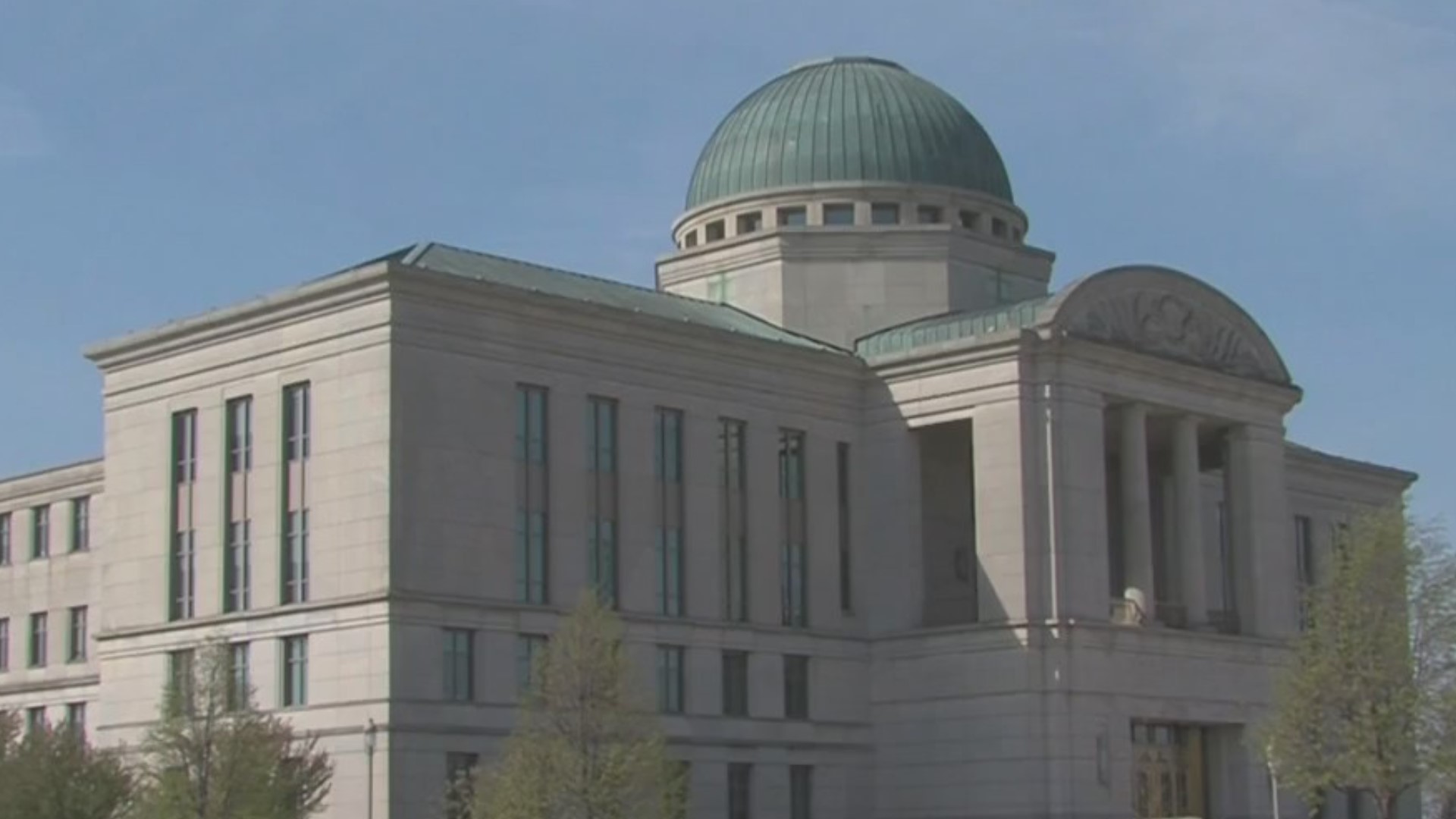DES MOINES, Iowa — VIDEO ABOVE: Iowa Supreme Court reconsiders state constitution's abortion right
The Iowa Supreme Court ruled Friday that allowing people charged with felonies to enter written pleas instead of appearing in court in person during the COVID-19 pandemic was an appropriate use of its constitutional powers and did not violate the rights of defendants.
The court ruled in the case of a northeast Iowa man who was charged, pleaded guilty and was convicted of intent to manufacture or deliver methamphetamine.
Timothy Basquin of Fayette entered a written plea of guilty to a class C felony on Nov. 12, 2020, when Iowa was experiencing a peak of COVID-19 activity and the court was allowing virtual procedures and written pleas.
Basquin appeared in person at his sentencing hearing the next day, where he was given a suspended 10-year sentence and two years of probation. The next month he filed an appeal, arguing the state’s rules of criminal procedure, court precedent and due process required an in-person plea discussion with a judge in open court. Even though Basquin had signed a document waiving his right to a plea hearing in open court, he challenged the Iowa Supreme Court’s supervisory orders that temporarily allowed written pleas, alleging they violated his constitutional rights.
After Iowa Gov. Kim Reynolds declared a COVID-19 public health emergency in March 2020, the court began allowing written guilty pleas to felonies. The state public defender did not object, instead expressing appreciation for the court’s protective measures and opposing in-person hearings except in limited circumstances, the court wrote in its unanimous opinion released Friday.
Basquin's state public defense attorney did not immediately respond to a message seeking comment.
The court took Basquin’s appeal, saying it raises constitutional issues about the court's supervisory powers. It concluded that the COVID-19 supervisory orders balanced the rights of defendants and public safety. The court said without written guilty pleas, many defendants would have languished in jail until in-person hearings resumed to normal levels. It upheld Basquin's conviction.
“We conclude our supervisory orders temporarily allowing written guilty pleas to felonies fall well within our court’s constitutional and inherent powers, especially during a public health emergency caused by a global pandemic that shut down jury trials and severely limited in-person court operations,” the court said.
Justices also concluded the orders did not violate the separation of powers because the court is granted constitutional authority to operate the judicial branch and the Iowa Legislature has not attempted to countermand the supervisory orders at issue.

